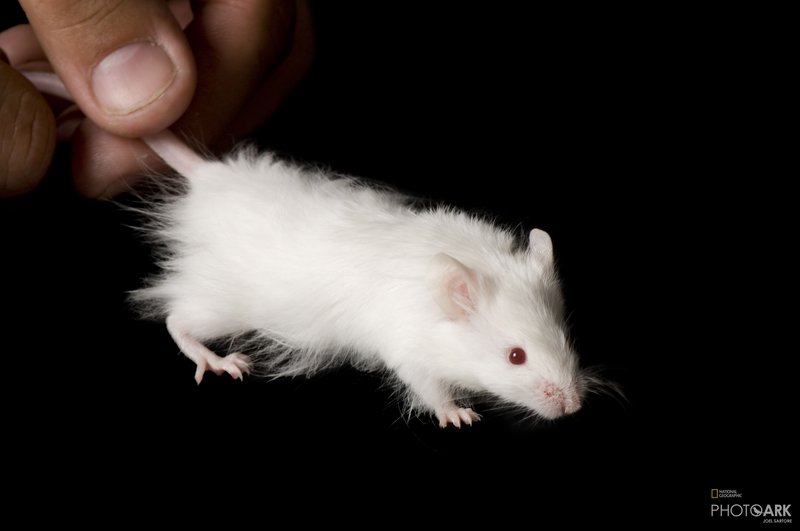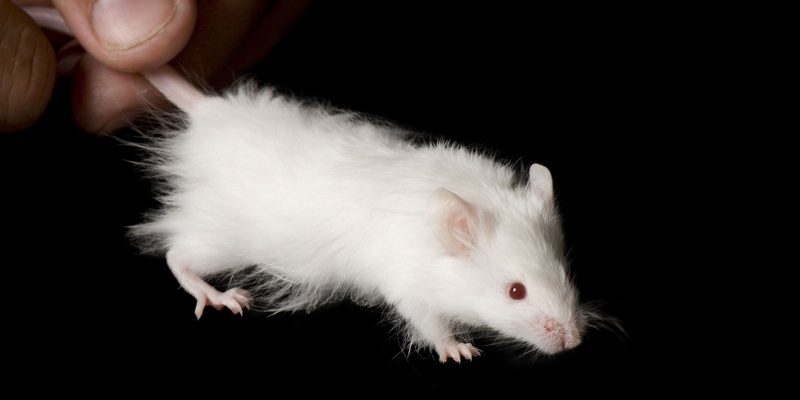
Much like how sun exposure can affect a fair-skinned person, albino mice are particularly vulnerable due to their lack of pigment. This can lead to various health problems, especially if they aren’t properly cared for. Let’s dive into some of the common health issues they face and talk about how you can help keep your furry friends healthy and happy.
Understanding the Unique Vulnerabilities of Albino Mice
Albino mice are different from their colored counterparts primarily due to a genetic mutation that causes a lack of melanin, the pigment that gives color to skin and fur. Because they have no protective pigment, they are more susceptible to certain health issues. One major concern is skin sensitivity. Without melanin, their skin is prone to irritation and sunburns. Imagine having your skin exposed to UV rays all day—yikes!
Eye problems are another common issue for albino mice. Their red eyes lack protective pigmentation, making them sensitive to light and more likely to suffer from conditions like cataracts. They can’t really run away from their problems since they often feel more vulnerable in bright environments. Providing a dim, comfortable habitat can help ease their discomfort.
Skin Conditions: Prevention and Care
Skin issues are one of the top health concerns for albino mice. Conditions like dermatitis can arise from poor cage conditions, such as damp bedding or improper cleaning. To prevent these problems, always use clean, dry bedding and change it regularly to provide a comfortable environment.
You should also be cautious about the types of materials used in their cages. Avoid harsh cleaning chemicals or materials that could irritate their sensitive skin. Instead, stick to pet-safe cleaning products. Think of it this way: if you wouldn’t want a harsh chemical on your own skin, why would you expose your pet to it?
Another preventive measure is to maintain a stable temperature in their living environment. Extreme temperatures can stress their skin, leading to further complications. Keeping the habitat in a controlled, comfortable range can go a long way toward preventing skin issues.
Respiratory Problems: Identifying and Preventing Issues
Respiratory issues are another concern for albino mice. They can develop conditions like pneumonia if exposed to drafts, dampness, or poor ventilation. Imagine being constantly exposed to a chilly breeze—it would make you feel pretty miserable, right?
To keep your mice healthy, ensure that their enclosure is well-ventilated but not drafty. A cozy, stable temperature helps them thrive. Regularly clean their cage to remove waste and prevent bacteria from building up. This really matters because a clean environment supports their immune systems.
If you ever notice your mouse sneezing, wheezing, or showing any signs of difficulty breathing, it’s crucial to consult a veterinarian. Early detection can make a huge difference in treatment outcomes.
Dental Issues in Albino Mice: Signs and Prevention
Just like humans, albino mice can experience dental problems as they age. Overgrown teeth might lead to discomfort and eating difficulties. Have you ever had a toothache? It’s no fun, and I can imagine it’s just as bad for them.
To prevent dental problems, provide a diet rich in fiber. This helps grind down their teeth naturally. Consider offering fresh fruits, veggies, and commercial mouse pellets. Chew toys made from safe materials are also great additions to their environment.
Regularly check your mice’s teeth. If you notice any signs of overgrowth or misalignment, a trip to the vet for a dental check-up is a must. Leaving dental issues untreated can lead to serious health problems.
Infectious Diseases: Watch for Symptoms
Albino mice can be prone to various infectious diseases, like respiratory infections or parasites. It’s vital to monitor their health closely. If you observe symptoms like lethargy, loss of appetite, or unusual behavior, something might be wrong.
Preventing infections involves maintaining a clean living space and keeping an eye out for any new additions to your mouse family. New pets should be quarantined for a while to ensure they don’t carry any illnesses. It’s kind of like how you wouldn’t want to catch a cold from a friend, right?
Additionally, scheduling regular veterinary check-ups can help catch any potential problems before they escalate. Doing this builds a proactive routine in caring for your mice.
Nutritional Needs: Tailoring the Diet
Feeding albino mice a balanced diet is crucial for their overall health. Honestly, nutrition plays an enormous role in preventing many health issues. A well-rounded diet should include high-quality mouse pellets, fresh fruits, and veggies. Think of it as the difference between fast food and a home-cooked meal—it can really impact how they feel.
Also, be cautious with treats. Some foods, like citrus or high-sugar snacks, aren’t suitable for mice. Moderation is key! You might be wondering how specific foods can impact their health. For example, insufficient vitamin C can lead to scurvy in mice, while too many carbs can cause obesity.
Always consult your vet for specific dietary recommendations. They can suggest the best foods to keep your albino mice in tip-top shape, ensuring they thrive in their environment.
Creating a Safe and Comfortable Environment
Lastly, creating a safe and comfortable habitat for your albino mice is essential for their wellbeing. Cage setup matters a lot—choose a spacious cage with plenty of enrichment. Mice love to explore, so adding tunnels, hiding spots, and chew toys keeps them active and engaged.
Avoid direct sunlight exposure in their living space. Since they’re prone to sunburn, placing their cage in a shaded area helps protect their delicate skin. Think of their home as a cozy nook that promotes their health and happiness.
Cleaning their environment regularly can’t be stressed enough. A clean space helps prevent many health issues we’ve discussed. Make it part of your routine to ensure your mice are living in a healthy, hygienic habitat.
Through understanding these common health issues and taking proactive steps, you can help your albino mice lead long, happy lives. Remember, caring for them is a bit like being a parent—it takes love, patience, and a little bit of knowledge to keep them healthy and thriving.

